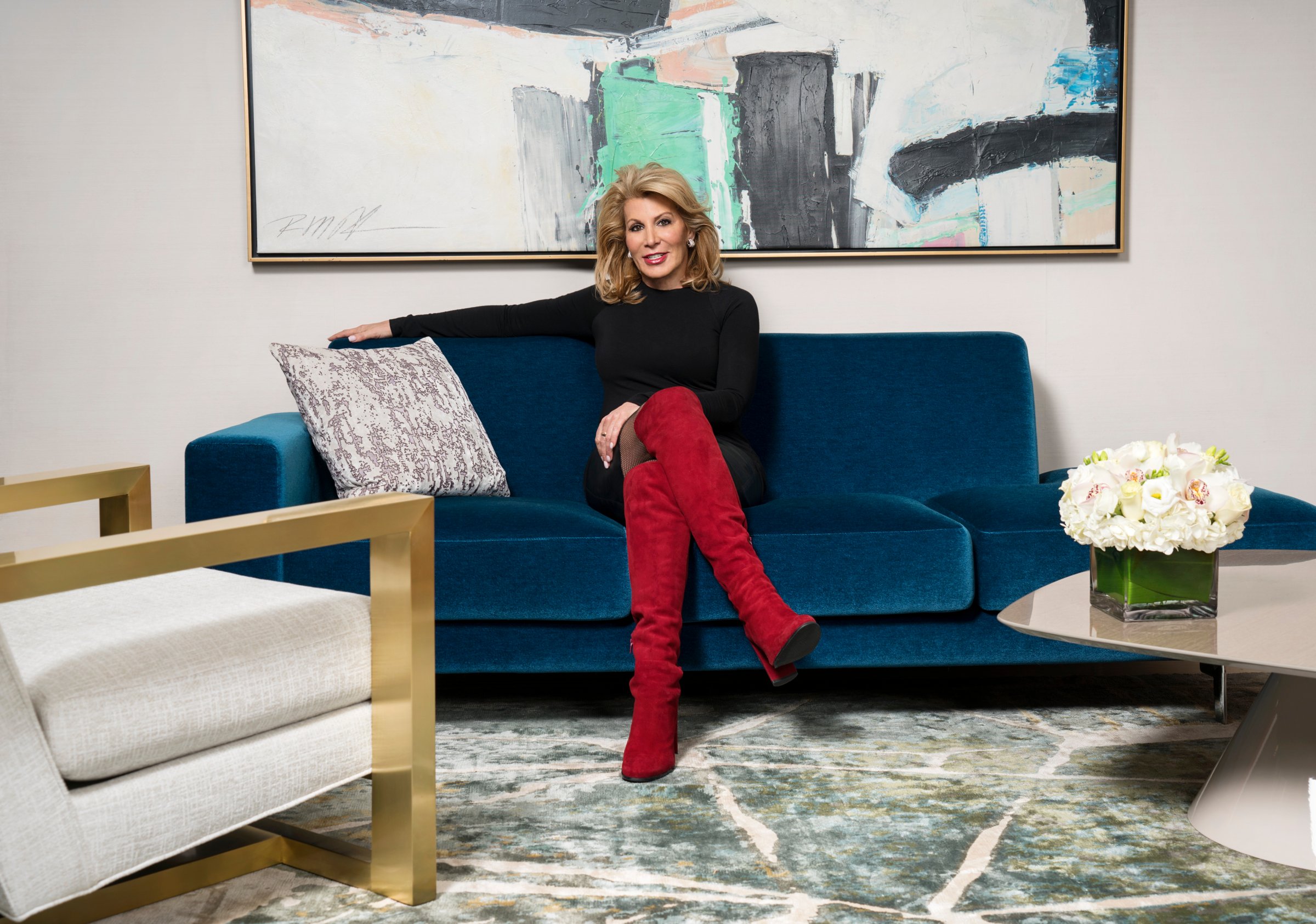
In The Boss, women share how they became successful and the lessons they learned along the way.
My first job as a teen was at a local department store in Long Island. Originally, I wanted the job so I could buy the latest fashions for a discount, but the experience taught me the value of money and how to interact with customers. Looking back, it set the stage for my career in real estate.
A few years later, I was working at a record store in Long Island. At the time, this was a great job. A record store was the place to be and be seen. All of my friends came by the store to hang out and listen to music; I was also making a living doing it. I was a buyer for rock ‘n’ roll and classical music, and the position taught me the importance of strong organization skills, being passionate and fulfilling the needs of customers.
I had one customer who loved classical music so much that I would order all of his favorite composers, and make sure that we always had enough stock in the store to build his vast collection. One day he surprised me with a gift: The Prophet by Kahlil Gibran. The book conveys the yearning for a unity of being that can only be achieved, according to the mystic tradition that Gibran followed, through love. It truly changed my life, and it’s a gift I still cherish to this day. I had no idea that my job at that record store would have such a profound impact on my life.
I then began my real estate career in the early 1980s. I started out as a regional manager for Merrill Lynch, stationed on Long Island, where I was running the North East division of the company. I managed approximately 1,500 employees and agents. In 1989, Merrill Lynch sold their real estate division to Prudential, where I stayed on running the Long Island area. With the change in ownership, I was convinced that I could run the company myself, so in 1990 I borrowed $9 million from Prudential to purchase Prudential Long Island Realty. Despite being told that I would never succeed, I turned the company into a powerhouse brokerage on Long Island and then in the Hamptons, where once again, I was told I’d never make it.
When I look back, I attribute some of success today to my early roots at Merrill Lynch. The company viewed their employees as their biggest assets, and invested in growing them. I was fortune enough to be one of the people that they grew and invested in. I flew all over the country and learned to view real estate from a global and investment perspective. I learned the importance of having a healthy and thriving corporate culture, which allows for employees to grow. I have instituted a lot of what I learned from Merrill Lynch into my own company today, and hope my employees feel like family. In 2003, certain I was ready to conquer Manhattan, my business partner Howard Lorber and I purchased Douglas Elliman, Manhattan’s largest and most prestigious brokerage firm.
Today, Douglas Elliman is the largest residential brokerage in New York City, with over 7,000 real estate professionals and 675 employees working in more than 113 offices. We’re also the third largest real estate company in America. In 2017, our annual revenue was $27.4 billion. This still feels like a dream, given where my career started and the challenges I’ve overcome to grow the business. Hard work and dedication, two things my family instilled in me from a young age, really does go a long way.
One question that people often ask me is how I juggle a personal life when I have such a busy professional life. The answer for me is simple: I love my work and when you love what you do it isn’t work, it’s passion. I’ve always led with passion and purpose, which means I’ve put the needs of my company and employees over my own. Grow your people and your business will grow. It’s really that simple. My secret to getting it all done is surrounding myself with the very best team, trusting them and empowering them to make smart decisions.
In life, everything happens for a reason. That’s why you have to take the good with the bad, and the bad with the good. Sometimes, what you may perceive as a bad experience might just be the lesson that can truly change your life.
More Must-Reads From TIME
- The 100 Most Influential People of 2024
- The Revolution of Yulia Navalnaya
- 6 Compliments That Land Every Time
- What's the Deal With the Bitcoin Halving?
- If You're Dating Right Now , You're Brave: Column
- The AI That Could Heal a Divided Internet
- Fallout Is a Brilliant Model for the Future of Video Game Adaptations
- Want Weekly Recs on What to Watch, Read, and More? Sign Up for Worth Your Time
Contact us at letters@time.com